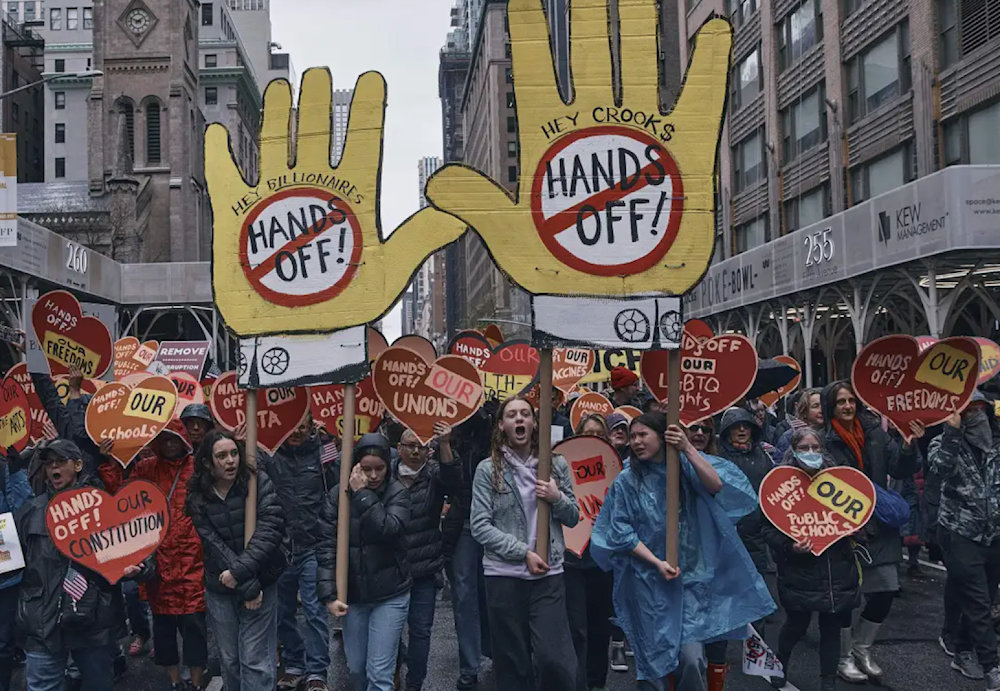Black activism absent from anti-Trump movement, eyes long fight ahead
Many Black campaigners involved in the 2020 marches have stated online that they are not interested in returning to public demonstrations right now.
-

Protesters shout slogans as they march during a "Hands Off!" protest against President Donald Trump on April 5, 2025, in New York. (AP)
Almost half a decade after driving the largest protest movement in American history, black activism has reached a generational, emotional, and strategic crossroads, Axios has observed.
Most of the Black Americans who flooded the streets in 2020 have withdrawn from the latest anti-Trump rallies, divided between the urgency of the moment and the spiritual cost of constant, sometimes unsuccessful opposition.
Trump's second-term policy openly opposes DEI, police reform, and the civil rights safeguards that have supported racial progress over the previous half-century.
However, leading Black activists told Axios that rest does not imply retreat and that the movement is developing — in leadership, tone, and tactics — for the long struggle ahead.
Photos from this weekend's "Hands Off!" rallies, in which millions protested DOGE cutbacks, immigration raids, and massive federal layoffs, indicate a significant turnaround from 2020.
Most participants were elderly and white, as witnessed at rallies around the country and verified to Axios, in sharp contrast to the multicultural, Black-led protests that erupted in the aftermath of George Floyd's death.
Campus rallies against Trump's immigration crackdown have predominantly attracted white, Latino, and Asian American students, with a little Black involvement.
In Washington, D.C., Black Lives Matter Plaza outside the White House was discreetly removed last month because of Republican budget threats, a symbolic loss in what was once the hub of 2020's racial crisis.
Many Black campaigners involved in the 2020 marches have stated online that they are not interested in returning to public demonstrations right now.
Some Black women interpreted Donald Trump's election as a wake-up call to focus inward and emphasize self-care, especially after voters overlooked his record of racist comments for a second time.
"It's definitely a feeling of, 'I'm not going to push myself to the point of exhaustion,'"Nina Smith, a strategist with the Movement for Black Lives, explained.
According to some organizers, black activism is transitioning away from mass mobilization and toward quieter techniques such as economic pressure campaigns, digital organizing, and behind-the-scenes alliance building.
Activists point to increased concerns about targeted state violence under Trump, including the possibility that Black demonstrators may be surveilled, jailed, or worse- a worry exacerbated by the treatment of legal residents caught up in deportation sweeps.

 3 Min Read
3 Min Read










